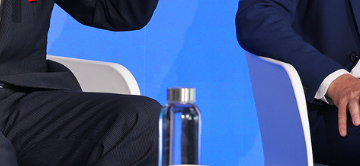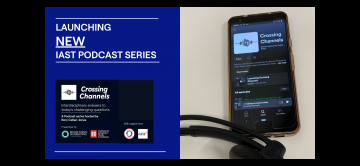The implicit contract between the citizen-taxpayer and the researcher that has been in force for the past 50 years is being challenged with increasing frequency. Public mistrust for academic expertise – particularly in real-world areas such as economics, medicine, the theory of evolution, climate science, or biology – has been exacerbated by the scientific community’s errors, such as the failure to remove harmful drugs from the market, or scientific fraud involving nonexistent or falsified data. Economists, as for them, have been blamed for their failure to predict the 2008 financial crisis.
Confronted with these criticisms, the academic community ought not to retreat en masse into the “ivory tower”. While some valuable researchers lack the appetite or ability to participate in public life, others are well equipped to respond to the need for independent experts to engage with society, to contribute to debates in decision-making bodies, and in the media.
The humble economist
The duty of an academic is to advance knowledge. In many cases (mathematics, particle physics, the origins of the universe) perhaps we should not be too preoccupied with the application of knowledge, but only with finding the truth – applications will come later, often in unexpected ways. Research driven only by the thirst for knowledge, no matter how abstract, is indispensable – even in the disciplines that are naturally closest to real-world applications. But academics must aim to make the world a better place; as a community they cannot refuse, as a matter of principle, to take some interest in public affairs.
Economists, for example, should help to improve sectoral, financial, banking, and environmental regulations, as well as competition law; to improve our monetary and fiscal policies; to reflect on how Europe is organized; to understand how to overcome poverty in developing countries; to make education and healthcare policies more effective and fair; to foresee the development of (and provide remedies for) inequality; and so on. They should also take part in government hearings, interact with the administration, and sit on technical commissions.
Researchers have an obligation to society to take positions on questions about which they have acquired professional competence. For researchers in economics, as in all other disciplines, this is risky. Some fields have been well explored, others less so. Knowledge changes, and what we think is correct today could be reevaluated tomorrow.
Finally, even if there is a professional consensus, it is never total. Ultimately, a researcher in economics can, at most, say that, given the current state of our knowledge, one option is better than another. Similarly, a climatologist may indicate areas of uncertainty regarding the extent and causes of global warming but can also usefully present likely scenarios have given the current state of our knowledge. A professor of medicine can likewise give an opinion on the best way to treat a type of cancer or degenerative disease. Thus, academics must maintain a balance between humility and the determination to convince others of the usefulness of their knowledge. This is not always easy, because others will find certainties easier to believe.
From ideas to policy
Keynes described economists’ influence this way: “Practical men, who believe themselves to be quite exempt from any intellectual influences, are usually the slaves of some defunct economist.” This view is not entirely out of step with reality. Whatever area of economics they pursue, there are two ways in which researchers can influence debate on economic policy and the choices made by businesses.
The first way is by getting involved themselves. Some, overflowing with energy, succeed in doing so, but it is rare that a researcher can continue to do extensive research and be very active in public debate at the same time.
The second way is indirect: economists employed by international organizations, government ministries, or businesses, read the work of academics and put it to use. Sometimes this work is a technical research article published in a professional journal; sometimes it is a version written for the general public.
The technical nature of microeconomic debates over competition policy, the prudential regulation of banks, or the regulation of network industries (such as telecommunications, trains, electricity, or the postal service) need not be an obstacle to policy decisions being based on this research. In fact, decision-making power in these areas has often been entrusted to independent authorities such as a competition authority, central bank, or sectorial regulator. These authorities are much less politically constrained than ministers in their choices, and they can more easily incorporate technical and economic knowledge into their decisions. Since Keynes made his grim observation, the journey from ideas to actions has accelerated.
Extrait du TSE Mag #18 Winter 201




